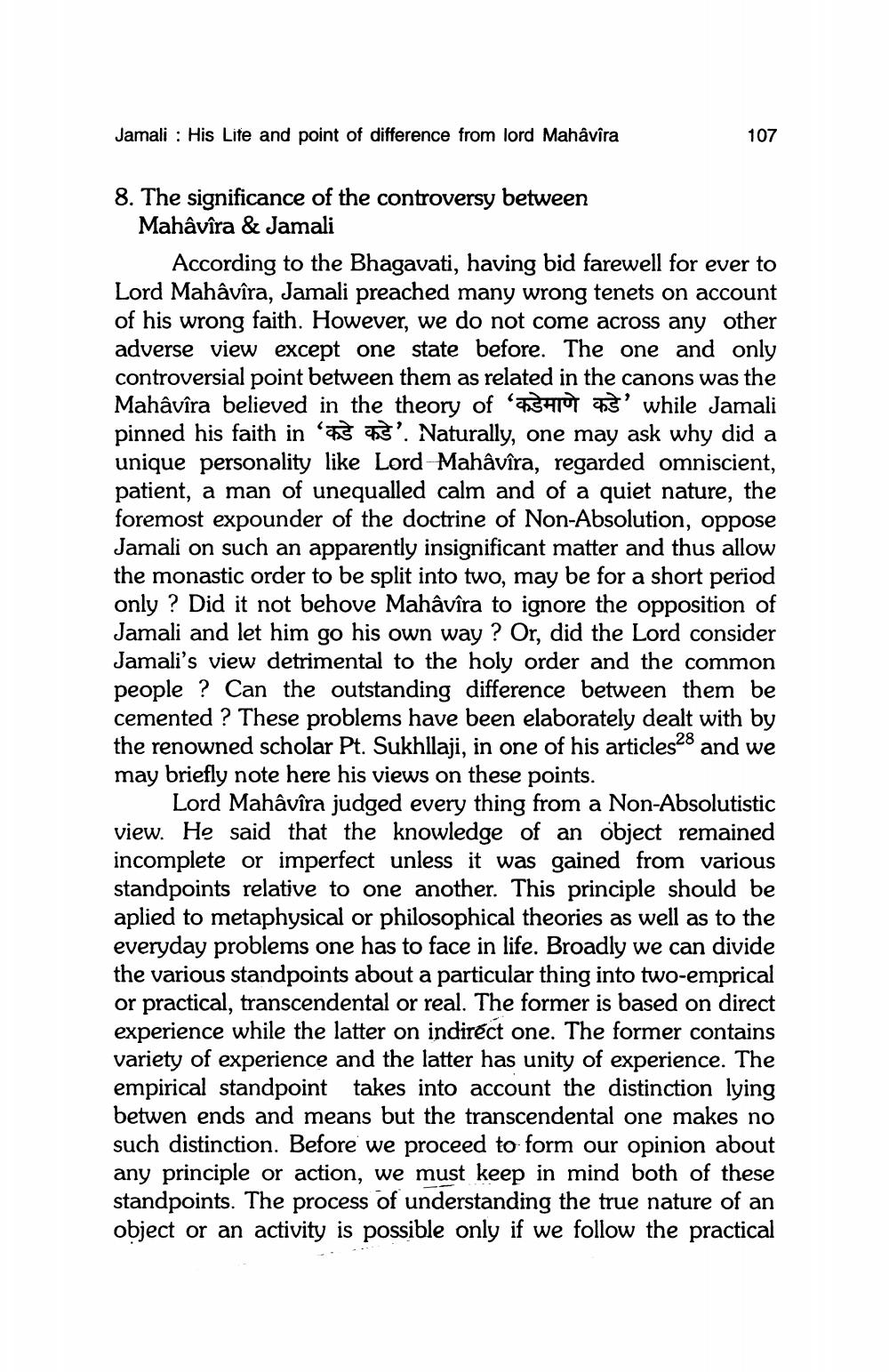________________
Jamali : His Lite and point of difference from lord Mahâvîra
107
8. The significance of the controversy between Mahâvîra & Jamali
According to the Bhagavati, having bid farewell for ever to Lord Mahâvîra, Jamali preached many wrong tenets on account of his wrong faith. However, we do not come across any other adverse view except one state before. The one and only controversial point between them as related in the canons was the Mahâvîra believed in the theory of 'TISHIOT Pos' while Jamali pinned his faith in TS 55'. Naturally, one may ask why did a unique personality like Lord Mahâvîra, regarded omniscient, patient, a man of unequalled calm and of a quiet nature, the foremost expounder of the doctrine of Non-Absolution, oppose Jamali on such an apparently insignificant matter and thus allow the monastic order to be split into two, may be for a short period only ? Did it not behove Mahâvîra to ignore the opposition of Jamali and let him go his own way ? Or, did the Lord consider Jamali's view detrimental to the holy order and the common people ? Can the outstanding difference between them be cemented ? These problems have been elaborately dealt with by the renowned scholar Pt. Sukhllaji, in one of his articles and we may briefly note here his views on these points.
Lord Mahâvîra judged every thing from a Non-Absolutistic view. He said that the knowledge of an object remained incomplete or imperfect unless it was gained from various standpoints relative to one another. This principle should be aplied to metaphysical or philosophical theories as well as to the everyday problems one has to face in life. Broadly we can divide the various standpoints about a particular thing into two-emprical or practical, transcendental or real. The former is based on direct experience while the latter on indirect one. The former contains variety of experience and the latter has unity of experience. The empirical standpoint takes into account the distinction lying betwen ends and means but the transcendental one makes no such distinction. Before we proceed to form our opinion about any principle or action, we must keep in mind both of these standpoints. The process of understanding the true nature of an object or an activity is possible only if we follow the practical




